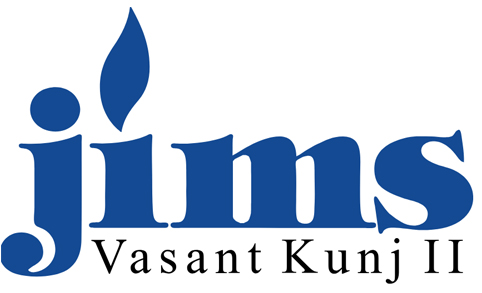As the Information Technology (IT) landscape continues to evolve at a rapid pace, new and exciting career opportunities begin to emerge across various sectors. Whether you are a seasoned IT professional or a newcomer exploring the field, it is crucial to stay informed about the latest trends and areas of growth. Here is a look at some of the most promising jobs in IT for the future.
1. Artificial Intelligence (AI) and Machine Learning (ML) Specialist
AI and ML are transforming industries by enabling systems to learn from data and make intelligent decisions. As these technologies advance, there will be a growing demand for experts who can develop, implement, and manage AI-driven solutions. JIMS VK2 has expert faculties in AI and ML. Roles in this area include:
- AI Research Scientist: Focuses on advancing the theoretical and practical aspects of AI.
- Machine Learning Engineer: Develops algorithms and models that enable machines to learn from data.
- AI Ethics Consultant: Ensures that AI systems are designed and used ethically, addressing biases and societal impacts.
2. Cybersecurity Experts
With the increasing prevalence of cyber threats, cybersecurity remains a top priority for organizations worldwide. The need for cybersecurity professionals is more critical than ever, and the field is evolving to address new challenges. Opportunities in this domain include:
- Cybersecurity Analyst: Monitors and responds to security incidents, conducts threat analysis, and ensures systems are protected.
- Ethical Hacker (Penetration Tester): Simulates attacks to identify vulnerabilities in systems before malicious hackers can exploit them.
- Security Compliance Specialist: Ensures that organizations adhere to regulatory requirements and industry standards.
3. Cloud Computing Specialists
Cloud computing has become a cornerstone of modern IT infrastructure, offering scalable and cost-effective solutions for data storage, processing, and management. As cloud technology advances, the demand for skilled professionals is rising. Key roles include:
- Cloud Architect: Designs and implements cloud solutions tailored to business needs.
- Cloud Engineer: Manages cloud infrastructure and services, ensuring optimal performance and security.
- Cloud Security Specialist: Focuses on securing cloud-based systems and data.
4. Data Scientists and Analysts
Data is often referred to as the new oil, and organizations are increasingly relying on data-driven insights to drive decision-making. The role of data scientists and analysts is crucial in this context. Opportunities include:
Data Scientist: Analyzes large datasets to uncover patterns, trends, and insights that inform business strategies.
Data Analyst: Interprets data to provide actionable recommendations and supports decision-making processes.
Big Data Engineer: Develops and maintains systems that handle and process vast amounts of data.
5. Blockchain Developers
Blockchain technology, known for its role in cryptocurrencies, is expanding into various sectors, including finance, supply chain management, and healthcare. Blockchain developers are needed to build and maintain decentralized applications (dApps) and smart contracts. Key roles include:
Blockchain Developer: Creates and implements blockchain-based solutions and applications.
Smart Contract Developer: Develops self-executing contracts with the terms of the agreement directly written into code.
Blockchain Consultant: Advises businesses on how to leverage blockchain technology to achieve their goals.
6. Internet of Things (IoT) Specialists
IoT is revolutionizing how we interact with the physical world by connecting devices and enabling them to communicate. This field offers a range of opportunities, such as:
- IoT Solutions Architect: Designs and oversees the implementation of IoT systems and solutions.
- IoT Security Specialist: Focuses on securing IoT devices and networks to prevent vulnerabilities and attacks.
- IoT Data Analyst: Analyzes data generated by IoT devices to provide insights and improve operational efficiency.
7. Robotic Process Automation (RPA) Developers
RPA involves using software robots to automate repetitive tasks, improving efficiency and reducing errors. The demand for RPA developers is growing as more businesses seek to streamline operations. Roles include:
- RPA Developer: Designs and implements automation solutions to handle repetitive tasks.
- RPA Consultant: Advises organizations on RPA strategies and helps with the deployment and optimization of automation processes.
- RPA Business Analyst: Identifies automation opportunities and ensures that RPA solutions align with business goals.
8. Quantum Computing Experts
Quantum computing represents a frontier in IT with the potential to solve complex problems beyond the reach of classical computers. As this technology progresses, there will be emerging roles such as:
- Quantum Algorithm Developer: Designs algorithms specifically for quantum computers.
- Quantum Software Engineer: Develops software and applications that leverage quantum computing capabilities.
- Quantum Research Scientist: Conducts research to advance quantum computing theory and applications.
Conclusion
The IT industry is on the brink of transformative changes, driven by advancements in technology and shifting business needs. By exploring these emerging areas in BCA Course at JIMS VK2 students can position themselves at the forefront of innovation and secure exciting career opportunities. Continuous learning and adaptability will be key to thriving in these dynamic fields. Whether you’re drawn to AI, cybersecurity, cloud computing, or any other emerging domain, the future of IT is full of possibilities.
Blog By: Dr. Poonam Malik
Dept. of Information Technology
JIMS, Vasant Kunj


Very well written and explained.
Much needed information
Great information about ML
An impressive piece of work on AI.
Very informative
Rapid advancement in the technology has created numerous opportunities for the students these days and itz Very well quoted in this blog.
very informative blog